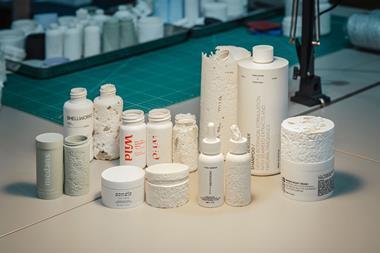Sainsbury's is to roll out its carbon reduction programme from the Sainsbury's Dairy Development Group to its red meat, poultry and egg supply chains.
The roll-out would enable meat, poultry and egg farmer suppliers to increase their on-farm efficiency and reduce their environmental impact, and would provide them with cost savings, according to Sainsbury's.
The same model that is being used to measure C02 output on SDDG farms will be applied to Sainsbury's beef, lamb, pork, poultry and egg suppliers. Factors such as feed and energy usage and manure conservation are analysed in order to identify ways for farmers to make improvements. The model was originally developed by AB Sustain, and is endorsed by The Carbon Trust.
Under the dairy scheme farmers have adopted methods such as switching to dual-tariff electricity, putting in photoelectric cells for lights, reducing hot water heating times and monitoring fuel, manure and fertiliser usage. Sainsbury's had decided to extend the scheme following its success within the SDDG, it said, as over the past 12 months SDDG farmers had reduced their carbon dioxide output by 5,000 tonnes.
“We have been delighted with the way our dairy suppliers have taken on the challenge of environmental responsibility in the past 12 months,” said Annie Graham, head of brand sustainability and agriculture.
Elsewhere, Asda claimed this week to have become the first retailer to put lower-carbon beef into its supply chain following the launch of a scheme last October, which takes bull calves from dairy farms and slaughters them for beef at between nine and 11 months. That meant the animals emitted less C02 than they would do if slaughtered at 24 months. The lower-carbon beef is sold in Asda nationwide. “We wanted to create a low-carbon beef that was both accessible to our consumers and viable for our farmers,” said Pearce Hughes, Asda’s agriculture development manager.
The same model that is being used to measure C02 output on SDDG farms will be applied to Sainsbury's beef, lamb, pork, poultry and egg suppliers. Factors such as feed and energy usage and manure conservation are analysed in order to identify ways for farmers to make improvements. The model was originally developed by AB Sustain, and is endorsed by The Carbon Trust.
Under the dairy scheme farmers have adopted methods such as switching to dual-tariff electricity, putting in photoelectric cells for lights, reducing hot water heating times and monitoring fuel, manure and fertiliser usage. Sainsbury's had decided to extend the scheme following its success within the SDDG, it said, as over the past 12 months SDDG farmers had reduced their carbon dioxide output by 5,000 tonnes.
“We have been delighted with the way our dairy suppliers have taken on the challenge of environmental responsibility in the past 12 months,” said Annie Graham, head of brand sustainability and agriculture.
Elsewhere, Asda claimed this week to have become the first retailer to put lower-carbon beef into its supply chain following the launch of a scheme last October, which takes bull calves from dairy farms and slaughters them for beef at between nine and 11 months. That meant the animals emitted less C02 than they would do if slaughtered at 24 months. The lower-carbon beef is sold in Asda nationwide. “We wanted to create a low-carbon beef that was both accessible to our consumers and viable for our farmers,” said Pearce Hughes, Asda’s agriculture development manager.


















No comments yet